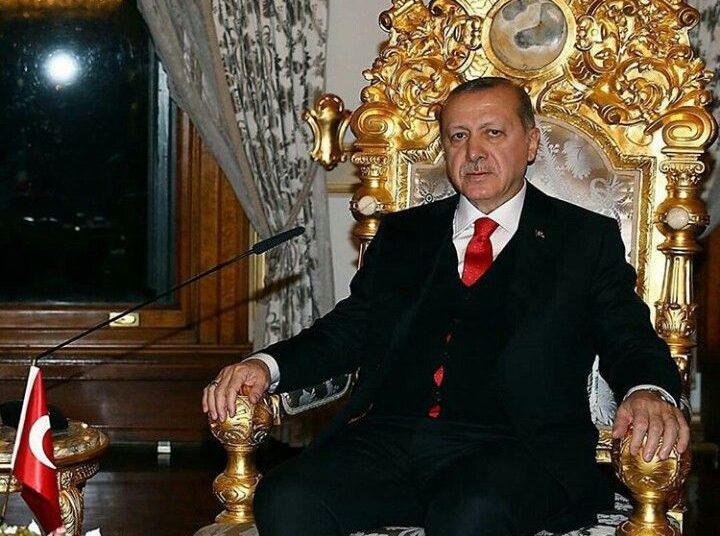Nordic Monitor
Reports by India’s intelligence agency on the role played by fronts for the Turkish government accused Turkey of radicalizing Indian Muslims and recruiting fundamentalists and of emerging as the hub of anti-India activities next only to Pakistan, the Hindustan Times reported.
According to the daily the government of President Recep Tayyip Erdoğan has been funding religious seminars in India, recruiting fundamentalists to radicalize people and even taking freshly minted radicals on all-expense-paid trips to Turkey to reinforce their learning.
Indian authorities believe that Erdoğan ‘s political agenda has led his government to expand its influence over Muslims in South Asia, particularly those in India, as noted by the daily.
According to the intelligence reports the Turkish diplomatic mission in New Delhi has forged alliances with Indian NGOs, and Indians “who serve Ankara’s agenda are being sent to Turkey by the embassy on exposure trips and encouraged to speak against India.”

Turkish-Indian relations have soured in recent years over Turkey’s support for Pakistan in the Kashmir issue. The Indian-Pakistani dispute over Kashmir has led to several conflicts since India’s partition in 1947.
Tensions have remained high since India passed a constitutional amendment in August 2019 revoking a special status and autonomy for Indian-administered Kashmir and absorbing it into the country’s governance mainstream. Since then, Turkey has been raising the Kashmir issue at various forums. For instance, Turkey has supported Pakistan at the Financial Action Task Force (FATF) to help it avoid further strictures on terror financing.
Turkey first raised the issue of Kashmir at the United Nations General Assembly in September 2019. When President Erdoğan visited Pakistan in February 2020, he again spoke about Kashmir, saying during a speech at the Pakistani parliament that the Kashmir issue was as important to Turkey as it was to Pakistan, recalling the help of the Pakistani people during Turkey’s War of Independence and stating that Kashmir would now be the same for Turks.

Last month an intelligence report accused the Turkish government of trying to radicalize Indian Muslims and recruit fundamentalists. A new report claimed that “fronts for the Turkish government or the outfits it supports – some of them directly linked to Erdogan and his family – appeared to have made deeper inroads in India than assessed earlier,” the Hindustan Times reported. According to the daily, much of the effort is directed via Turkish state media, educational institutes and the nonprofit sector, or NGOs.
“Turkey has been providing lucrative scholarships and running exchange programmes for Indian Kashmiri and Muslim students to study in Turkey through state-sponsored NGOs. Once the students land in Turkey, they are approached and taken over by the Pakistan proxies operating there,” the report said.
According to the Indian daily the Turkey Youth Foundation (TÜGVA), founded by Erdoğan’s family members; the Presidency of Turks Abroad and Related Communities, a diaspora agency; Turkish Airlines; the Yunus Emre Institute, a government-funded language and cultural center; Turkey’s Diyanet Foundation, a charity associated with Turkey’s Religious Affairs Directorate (Diyanet); and the Turkish Cooperation and Coordination Agency (TIKA), a development agency, have provided scholarships to those students.

TÜGVA, an organization controlled by Erdoğan’s son Bilal Erdoğan, plays a crucial role in the dissemination of Erdoğan’s radical Islamist ideology and in controlling the religious realm of Turkish society. President Erdoğan described the aim of TÜGVA and other family organizations as “working for the construction of a new civilization,” and they act as quasi-official regime charities.
The ideological underpinnings of family foundations are rooted in political Islamist activism with alarming jihadist leanings. When examined as to who drives the ideological basis for these foundations, two controversial names come to light. One is Hayrettin Karaman, also known as the chief fatwa (religious edict) giver for Erdoğan, whom he effectively declared caliph. Karaman, who openly advocated the view that all Muslims are obligated under Islam to support Erdoğan, is in fact a Turkish version of the Muslim Brotherhood’s spiritual leader, Yusuf al-Qaradawi, who endorsed suicide bombings and armed rebellion in Syria.
Another ideologue is Nureddin Yıldız, a radical cleric who is close to the Turkish president. Yıldız openly advocates armed jihad, describes democracy as a system for infidels and says it can only be used as a means of deception to rise to power. Yıldız is the man who radicalized the young al Nusra-affiliated police officer who assassinated the Russian ambassador to Turkey in December 2016.
He had close ties to the leader of Ahrar al-Sham, Hassan Abboud, also known by the nom de guerre Abu Abdullah al-Hamawi, who was killed in September 2014. Yıldız had pictures with Abboud during a visit to İdlib. On Sunday, Nordic Monitor reported on his remarks about the conquest of Jerusalem and wiping out Jews. “When Turkish women abide by the Medina Charter instead of the Istanbul … and prefer the protection of God rather than human protection, the Jews will be disappeared and Jerusalem be ready for a new [Islamic] conquest,” he said.

In addition to its activities as reported by Indian intelligence, the Turkish Embassy has spied on representatives of the Indialogue Foundation, which brings together members of different religions and cultures and organizes the International Festival of Language and Culture (IFLC) in the country; on the directors of the Turkish Indian Chambers of Commerce and Industry; and on teachers and prominent businessmen who have been living in the country for more than 20 years.
The Ankara Chief Public Prosecutor’s Office launched a separate investigation (file no. 2018/230240) into 12 Turkish nationals in India who were listed in espionage files dispatched by Turkish diplomats in New Delhi without any concrete evidence of wrongdoing. The investigation was based on spy files kept at the Turkish Embassy in New Delhi in 2016 and 2018.












